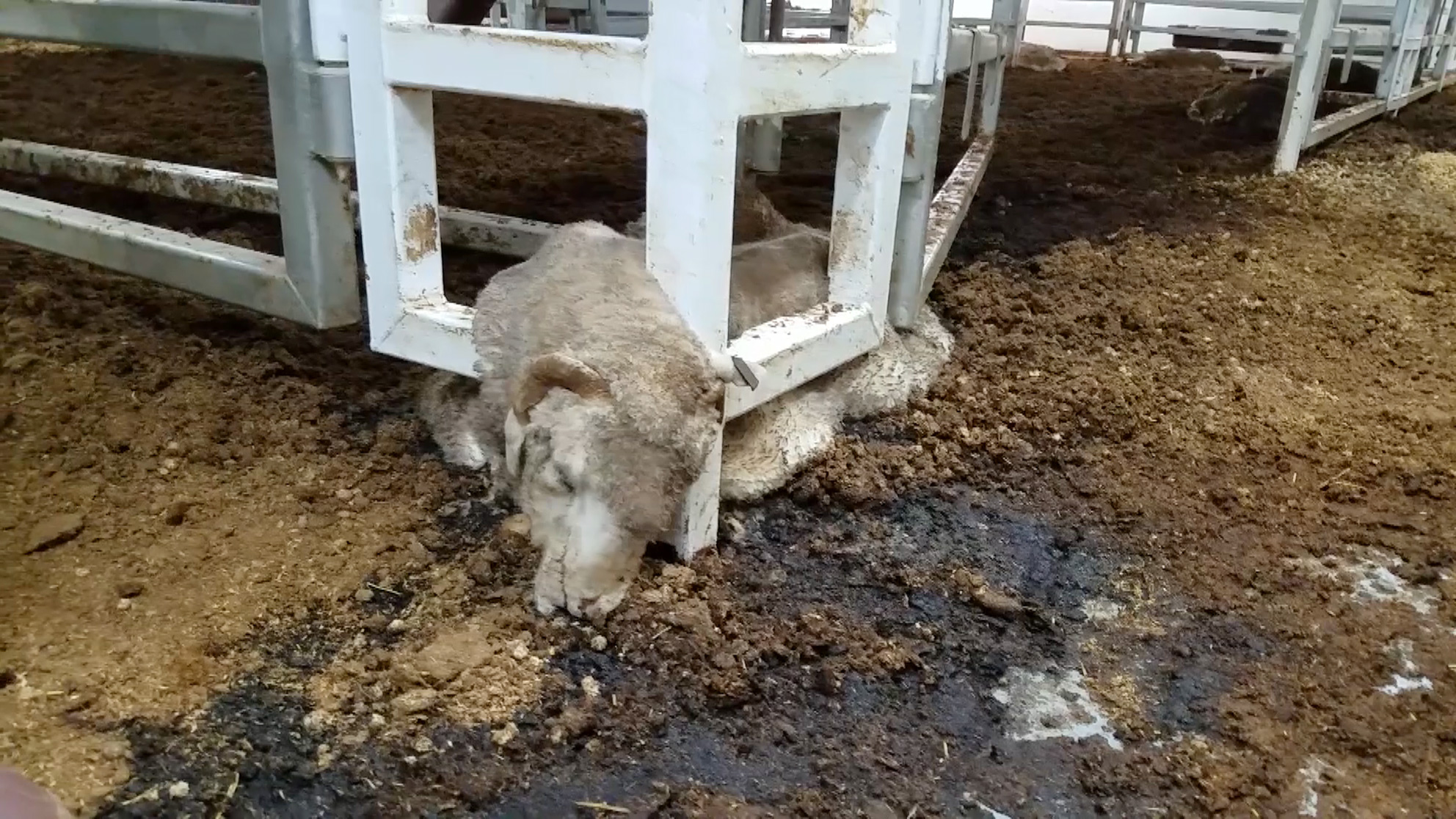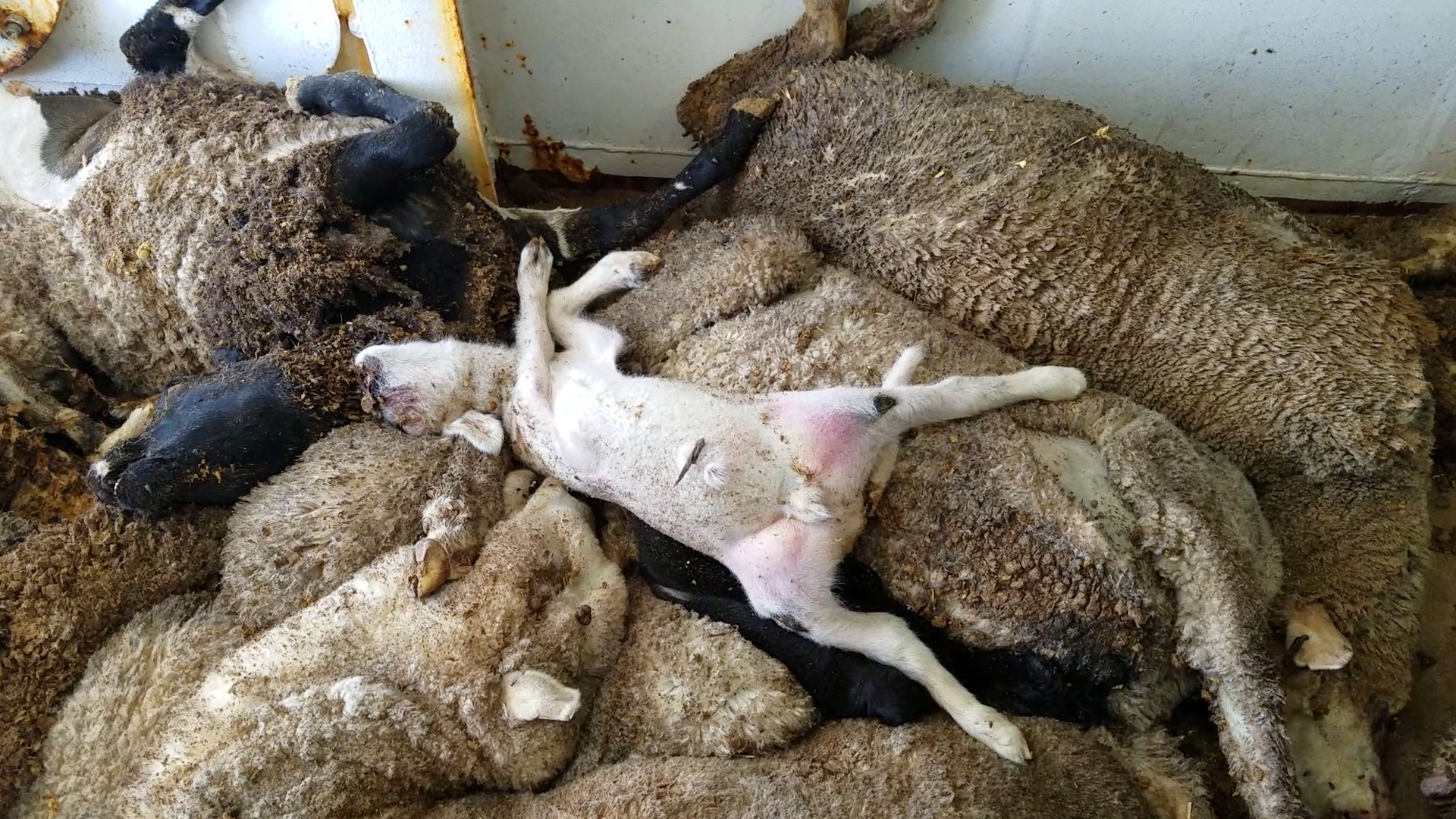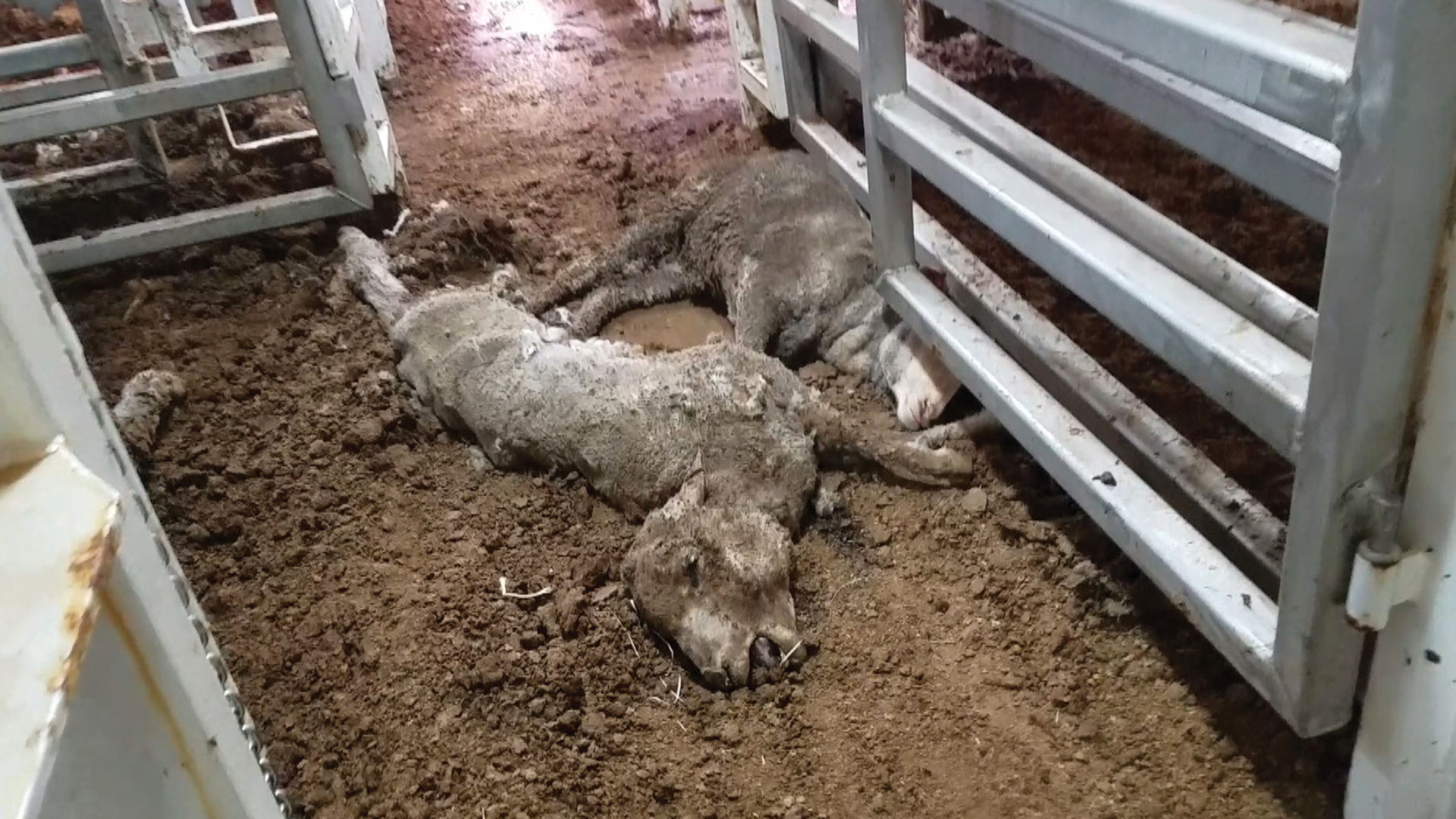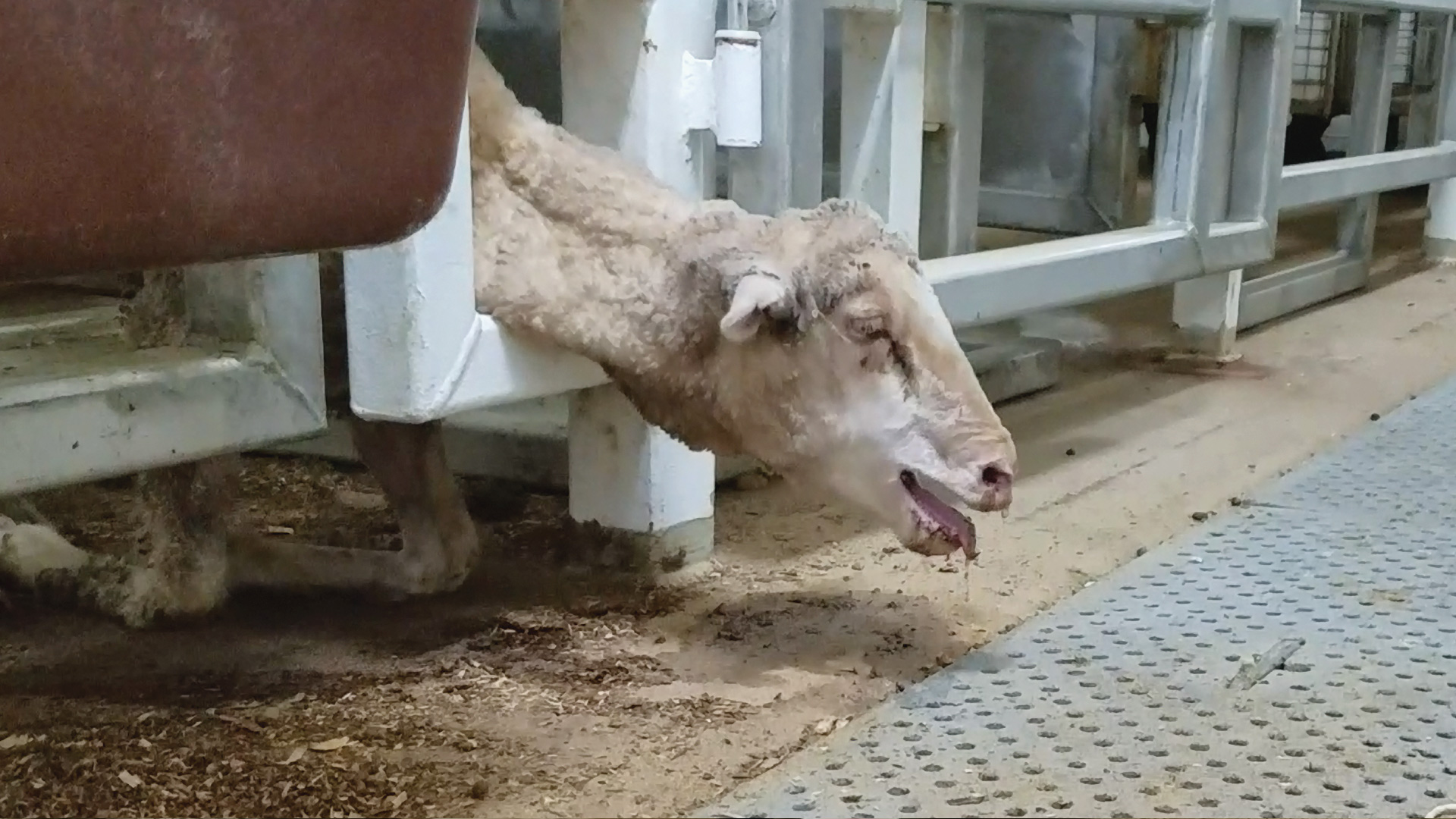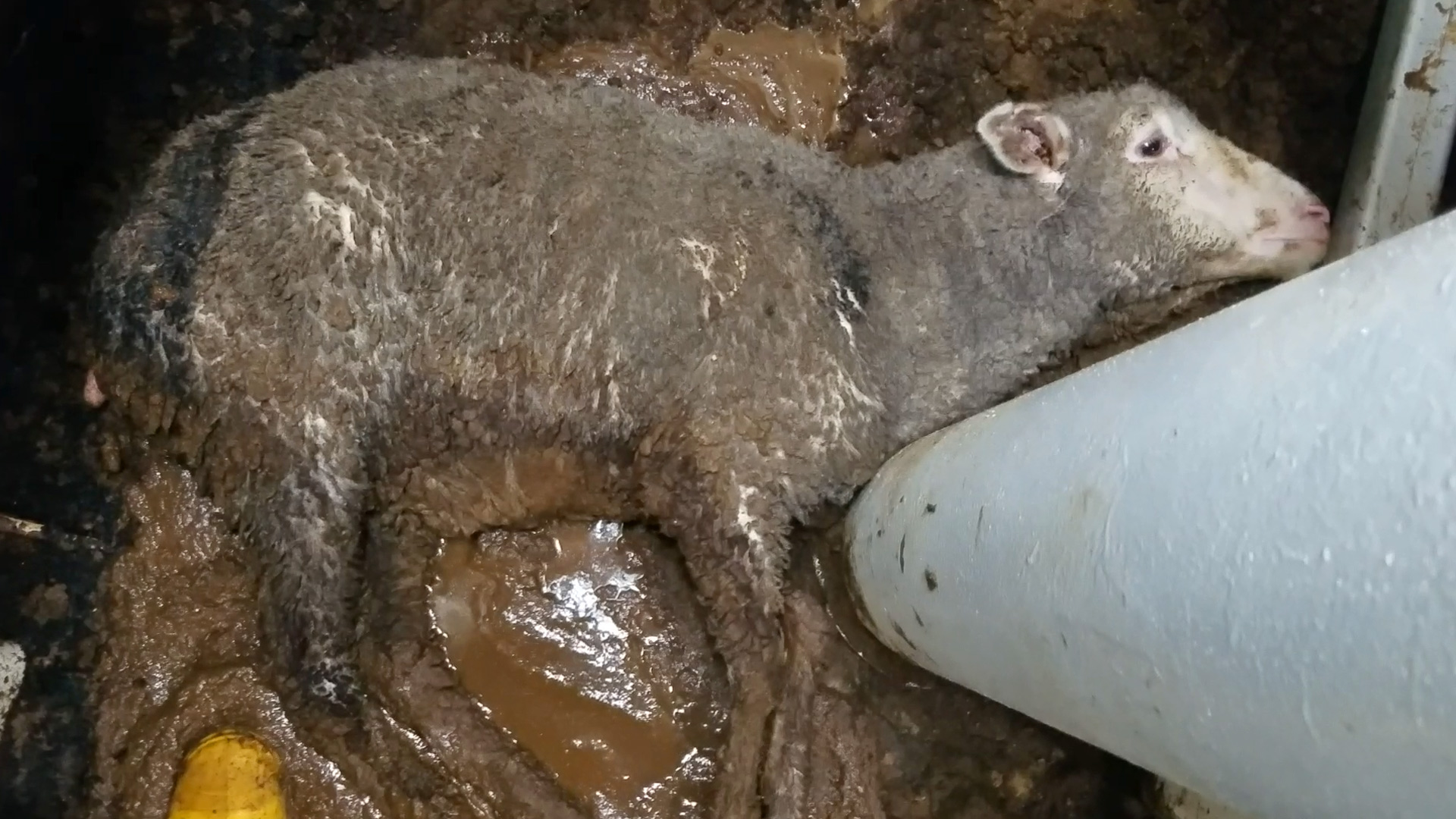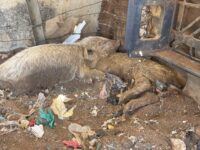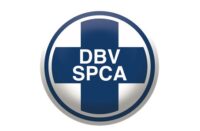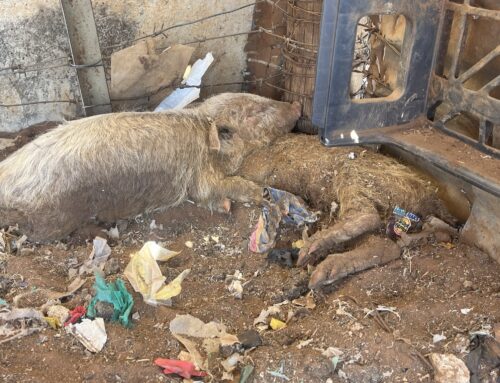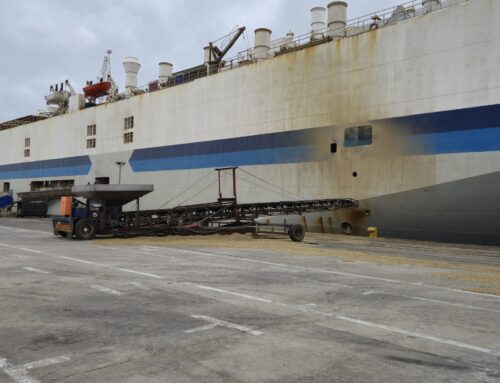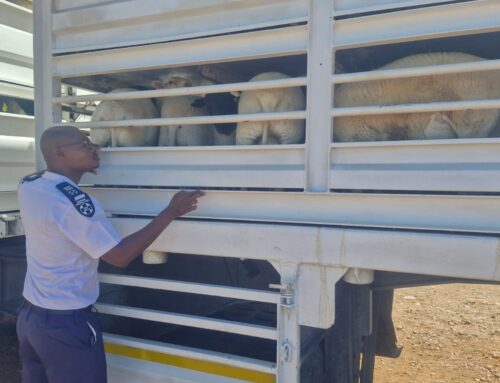Animals Are Not Cargo!
Every single year, thousands of live animals are shipped out of South Africa on vessels bound for foreign markets. They travel for days, sometimes weeks. They endure hours of long journeys on the road from the feedlots. They spend even more time at the docks, waiting to be loaded. They then face many days on the ocean, suffering from exhaustion, dehydration, and extreme stress.
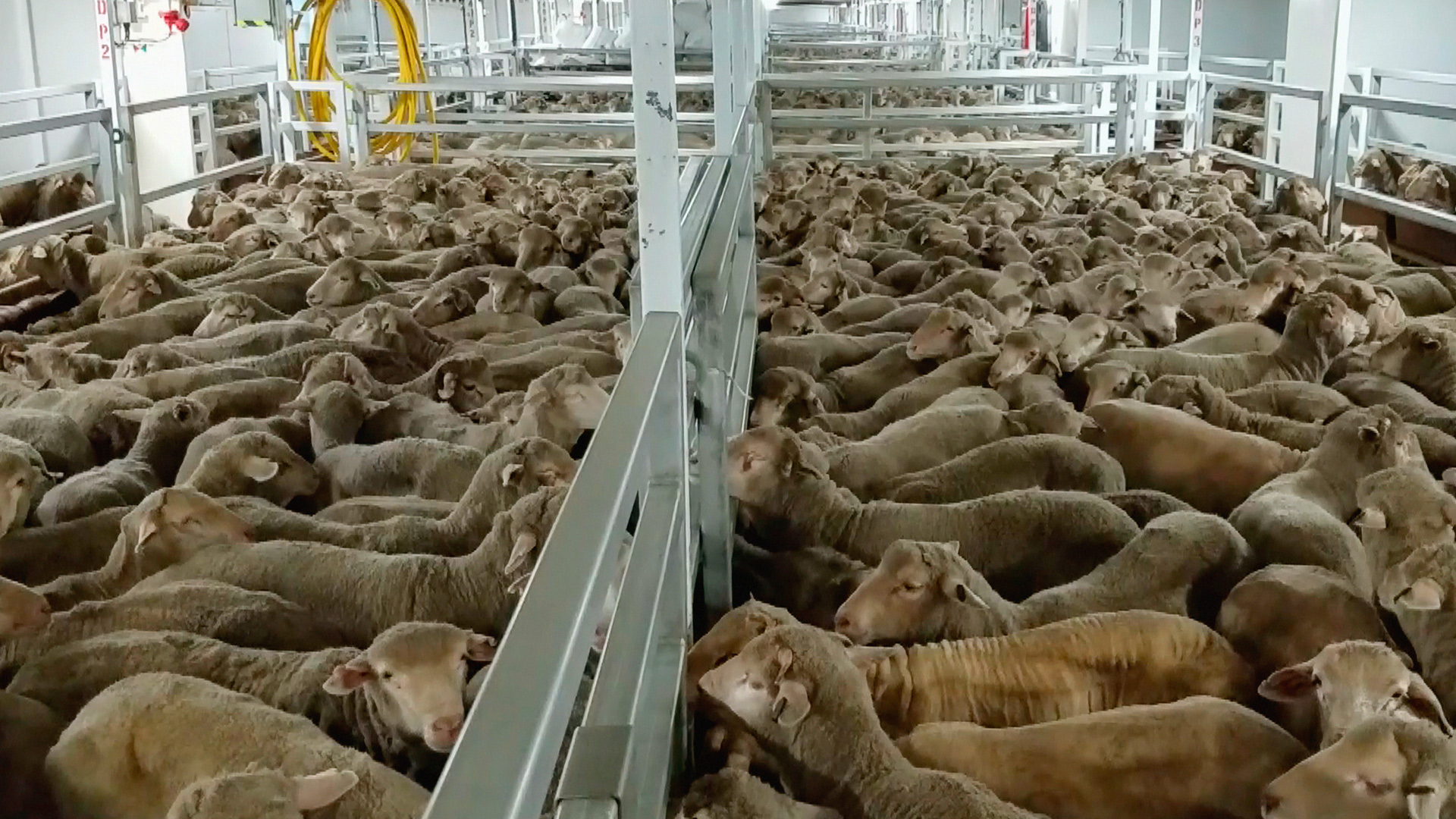
The live export trade treats sentient beings as if they are nothing more than freight. On 14 June, we join voices around the world to say: enough.
The NSPCA is the only organisation in South Africa that has boots on the ground to fight against live export. We conduct inspections of live export feedlots and are one of few organisations in the world that actually board live export vessels for inspections. There are just a handful of organisations globally that do this work. And it’s work that is not only critical, it’s heartbreaking.
“If one person is unkind to an animal it is considered to be cruelty. But when a lot of people are unkind to animals, especially in the name of commerce, the cruelty is condoned and, once large sums of money are at stake, will be defended to the last by otherwise intelligent people.” — Ruth Harrison
A Year on the Docks: What We Witnessed (April 2024 – May 2025)
Between April 2024 and May 2025, the NSPCA monitored over 20,000 cattle, sheep, and goats that were shipped from South African ports and bound for Mauritius. Despite our persistent oversight, the systemic issues inherent in the live export trade were on full display:
There have been recurring welfare concerns during the transport and handling of animals, including prolonged periods of animals being left in stationary trucks, excessive use of electrical prodders, and the transport of compromised animals. Incidents have also included severe trauma following accidents, with injured animals being transported again despite their condition. Additionally, some animals have arrived at their destinations so exhausted that offloading has taken an unreasonably long time, indicating poor handling and inadequate consideration of their welfare throughout the process.
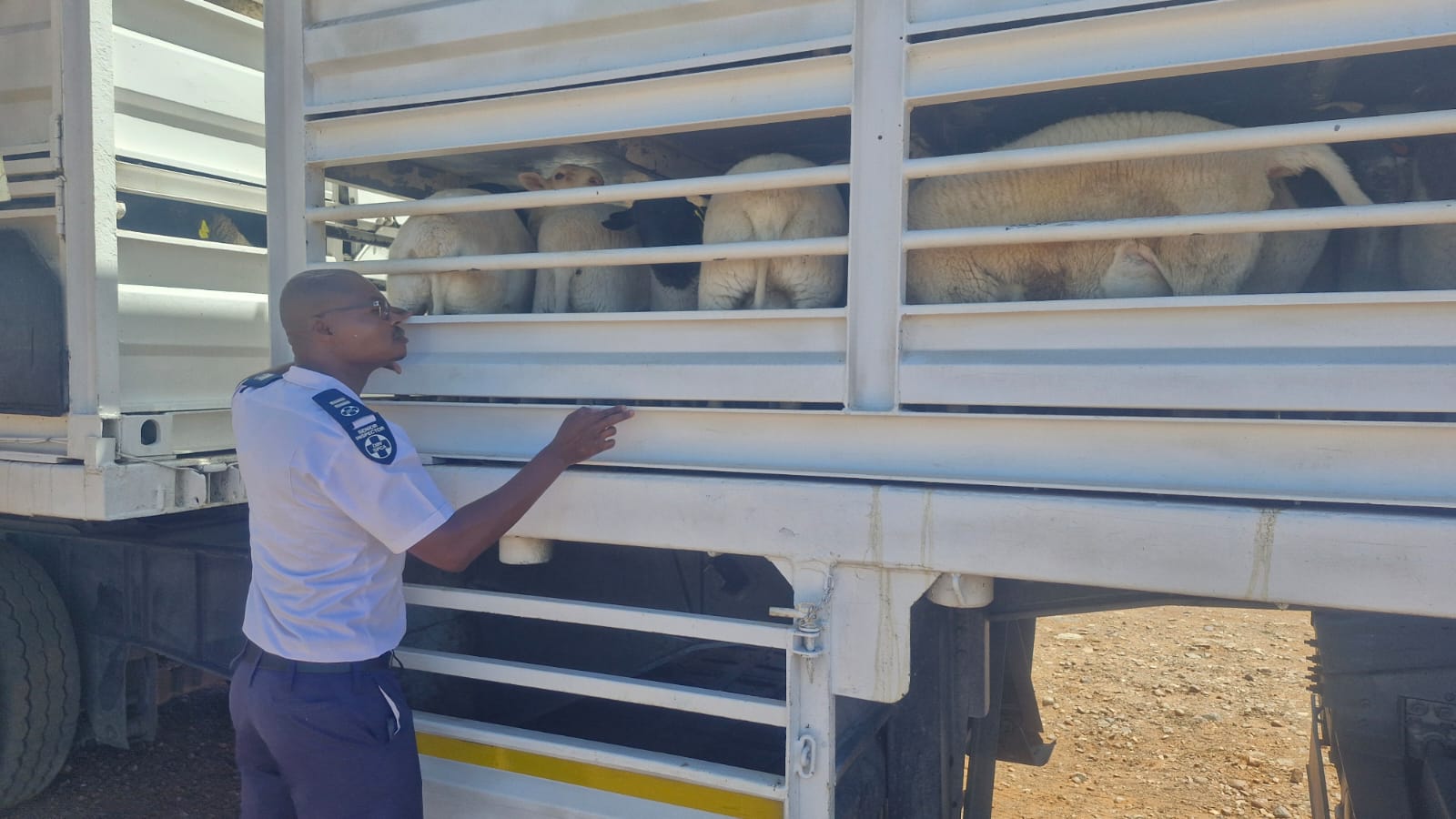
In between these reported incidents were shipments that, on paper, might seem “incident-free.” But, the absence of a documented event does not mean the absence of suffering. It simply means that the suffering wasn’t seen, not by inspectors, not by the public, and not by those with the power to intervene. It may have happened quietly, en route or at sea, hidden behind closed containers and beneath the surface of official reports. Just because pain isn’t recorded doesn’t mean it didn’t exist. In many cases, it simply means it was out of sight, and sadly, out of reach.
When the Ship Leaves, So Does Accountability
In 2024, we received a delayed independent monitor report from a previous shipment. The report was filled with incidents that illustrated just how quickly conditions on board can deteriorate once the vessels leave port. Among the general issues observed were:
- Deaths occured as a result of heat stress. Many cattle and sheep died while at sea, due to sudden spikes in both humidity and heat.
- Heavily pregnant ewes gave birth at sea, with some dying due to birthing complications.
- Animals with overgrown horns or in poor condition were loaded without proper screening.
- Converted sheep decks were used for cattle, confining them to unsuitably cramped conditions and leading to higher temperatures and poor ventilation.
- Deaths occured during offloading, where animals bolted from the dock in fear. Some fell into the ocean and drowned, while others suffered from traumatic injuries.
All of these welfare concerns were predicted by the NSPCA before the vessel left.
Even if there is a veterinarian on board, or with daily inspections, and ventilation systems in place, animals still suffered and died during this journey.
These deaths aren’t anomalies; they are regular occurences. The conditions that lead to suffering are not accidents or oversights. No amount of oversight can undo the stress, overcrowding, heat, and fear these animals endure. Dozens of lives are lost on a single voyage. Is this simply a sign of a failure in protocol? We believe it is a sign that the system itself is broken.
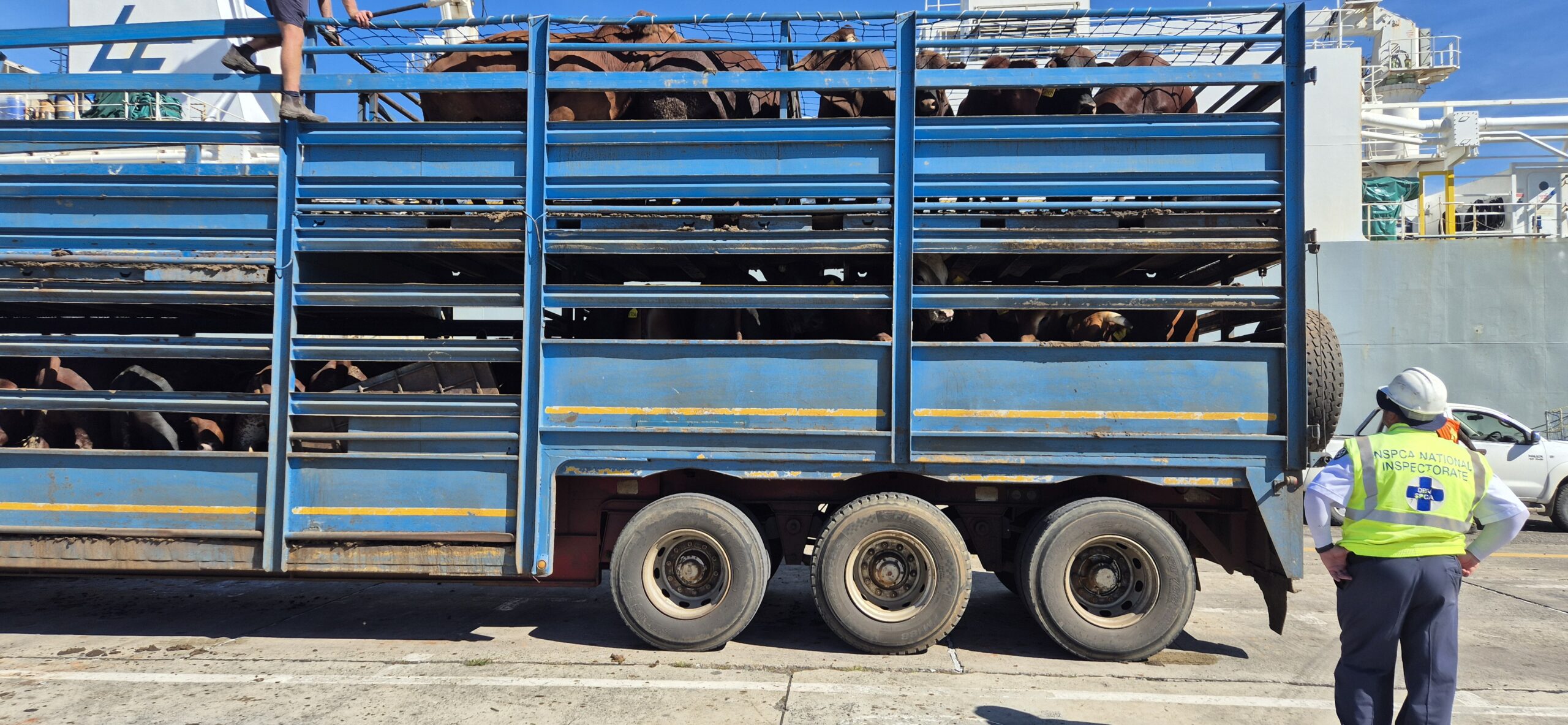
The Cruelty Is the System
Even when “protocols” are followed, live export remains inherently cruel. The process itself is the problem:
- Animals endure long-distance transport by road to the ports, in hot and overcrowded conditions.
- Inevitable delays at the harbour often result in the animals left waiting in stationary trucks with no relief or rest after the long journey.
- Exhausted, weak, and dehyrdrated, the animals are now forced to spend weeks at sea in confined, poorly ventilated spaces with no escape from faeces, urine, or fear.
- There is no legal protection for these animals once they leave South African jurisdiction.
This is not the exception. It is the norm.
What Sets Us Apart – and Why It Matters
The NSPCA remains the only entity in the country that inspects these shipments. We issue warnings. We intervene. We document the suffering. We prosecute. We head to the High Court. But we cannot make this trade humane. No one can. Because at its core, live export is based on one false premise: that animals are products.
They are not.
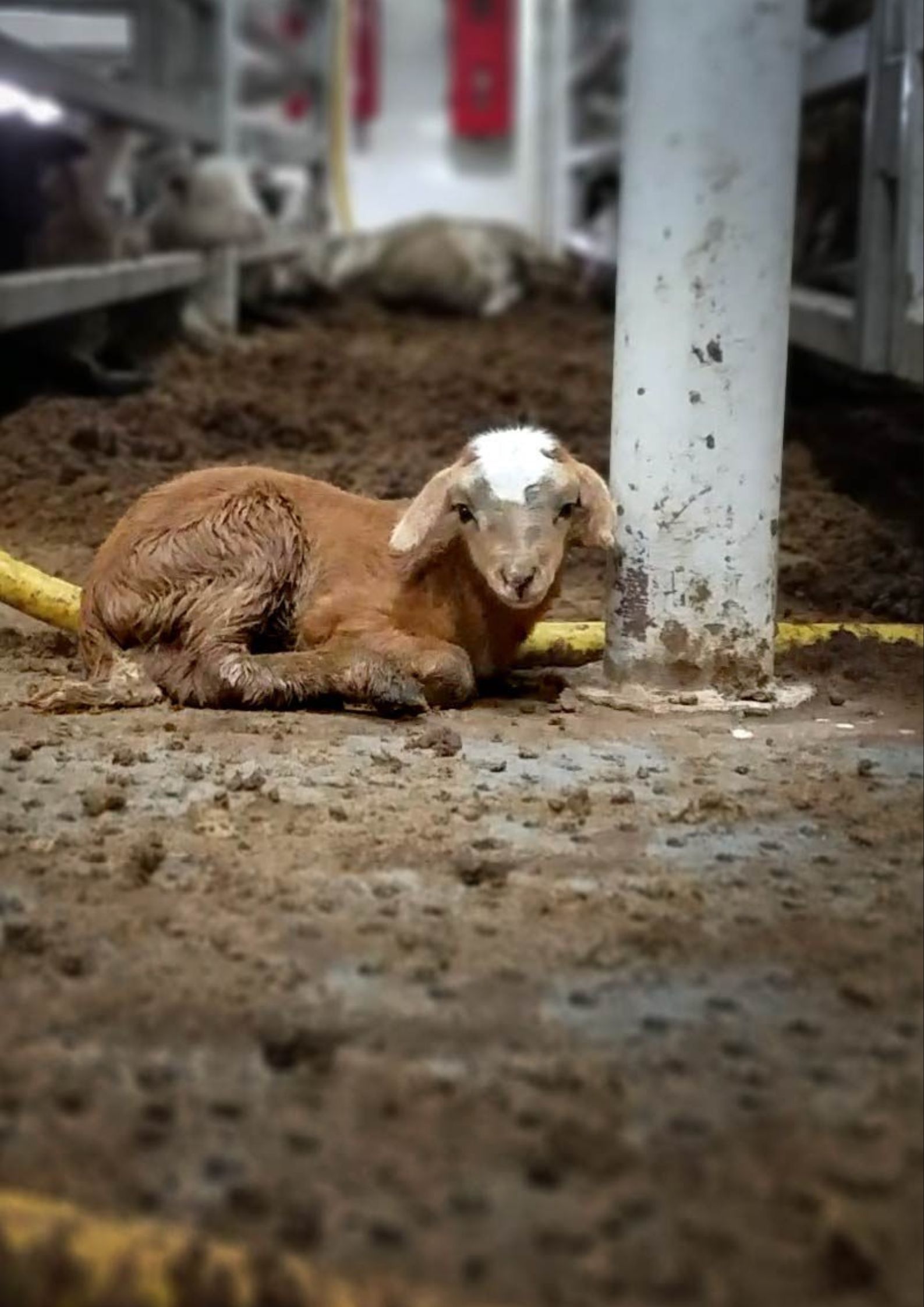
This 14 June, Join the Call: Ban Live Exports
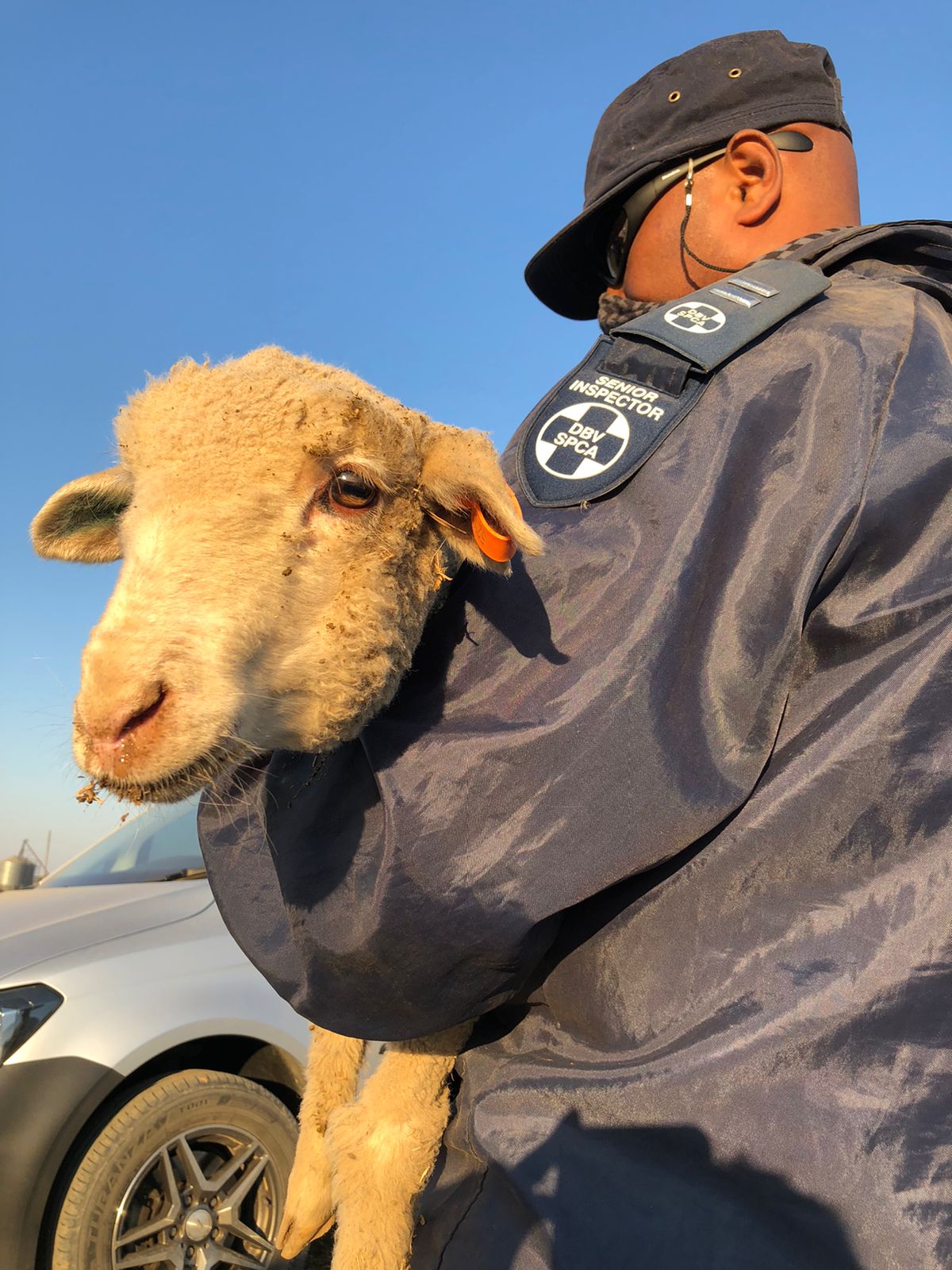
On International Awareness Day to Ban Live Export, we ask you to join us and take a stand.
- Speak out. Share this story and use your voice. Use #BanLiveExports and #AnimalsAreNotCargo.
- Demand change. Ask policymakers and industry to end the export of live animals by sea. Push for legislation that recognises animals as sentient beings, not shipping cargo.
- Support the NSPCA. We receive no government funding to conduct inspections. Your donations keep our inspectors on the frontlines
This Is Not Trade. It’s Betrayal.
South Africa has a choice. We can keep turning a blind eye, or we can lead. We can be the country that recognises that animals feel pain, terror, and exhaustion. We can highlight the fact that animals are not products; they are living, sentient beings that deserve more than the cruelty and suffering they are forced to endure. Live animals do not belong in the bowels of ships.
This is not about industry. It’s about integrity.
Let’s be on the right side of history.
If you are as passionate about animals and their well-being as we are, consider supporting our causes by donating.
Latest News Posts
Will You Be the One Who Takes Action?
Most people will scroll past this. But will you be the one who stands up for animals?
Animal welfare isn’t always in the spotlight, but it changes lives – for every neglected, abused, or suffering animal we help. Our teams work tirelessly, often behind the scenes, ensuring animals across South Africa are protected.
This work is relentless. The challenges are immense. But with more hands, hearts, and resources, we can do even more.
The equation is simple: the more supporters we have, the greater our reach, the stronger our impact.
Be part of the change. Become an NSPCA Project Partner today. From just R50 per month, you can help ensure that no animal suffers in silence.

